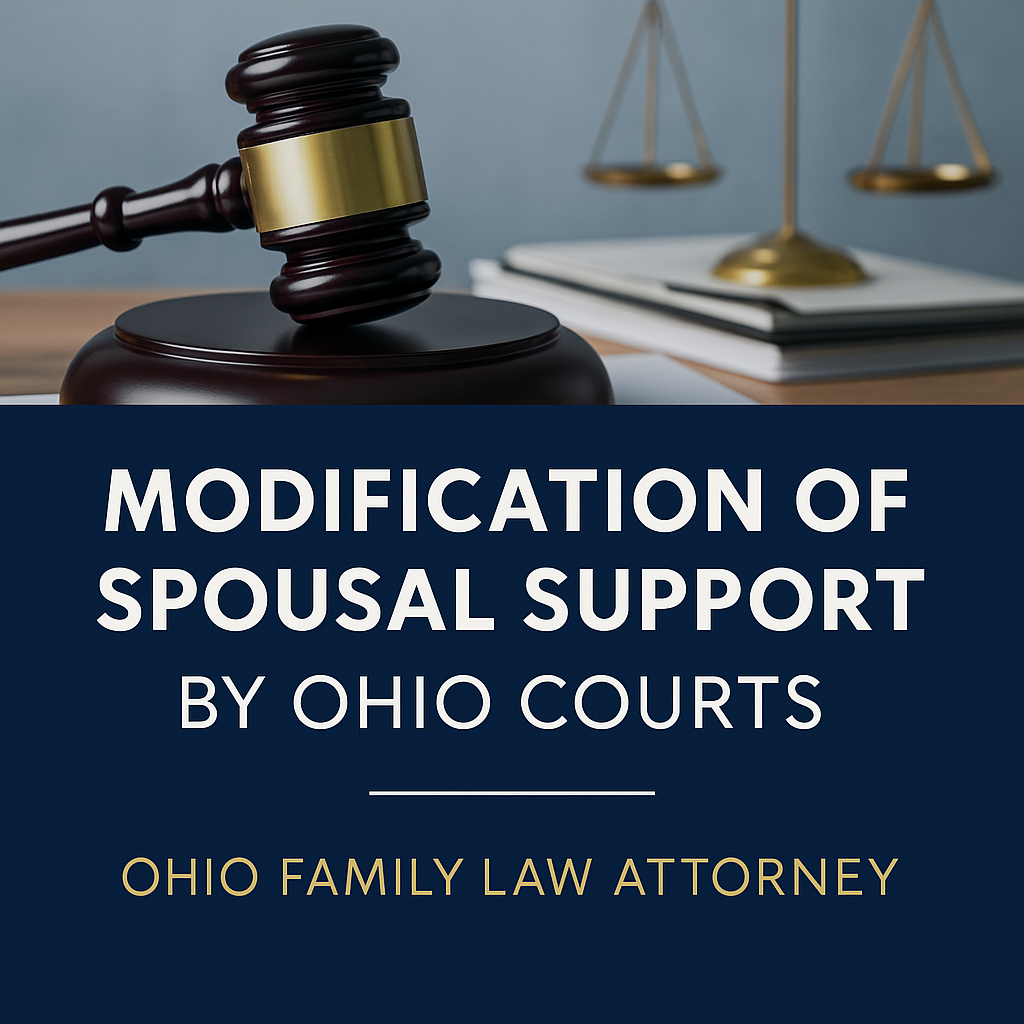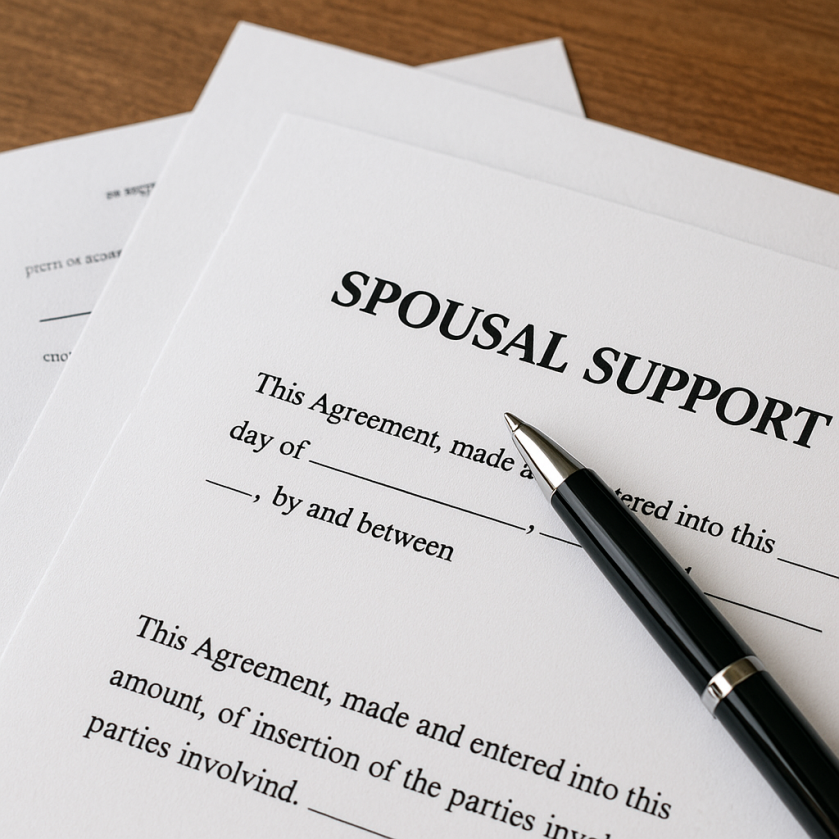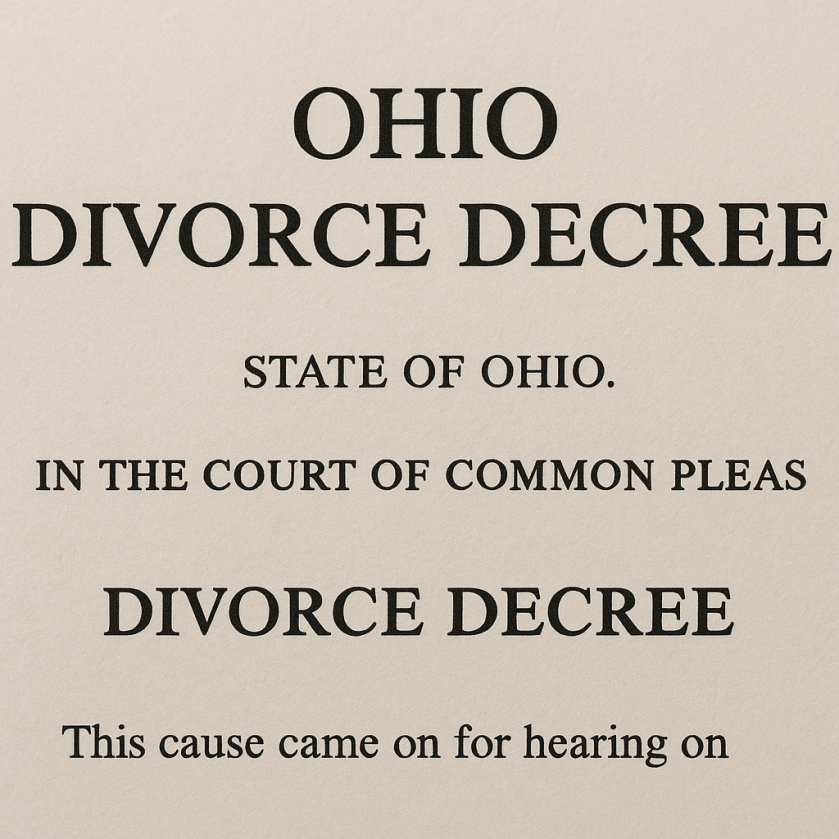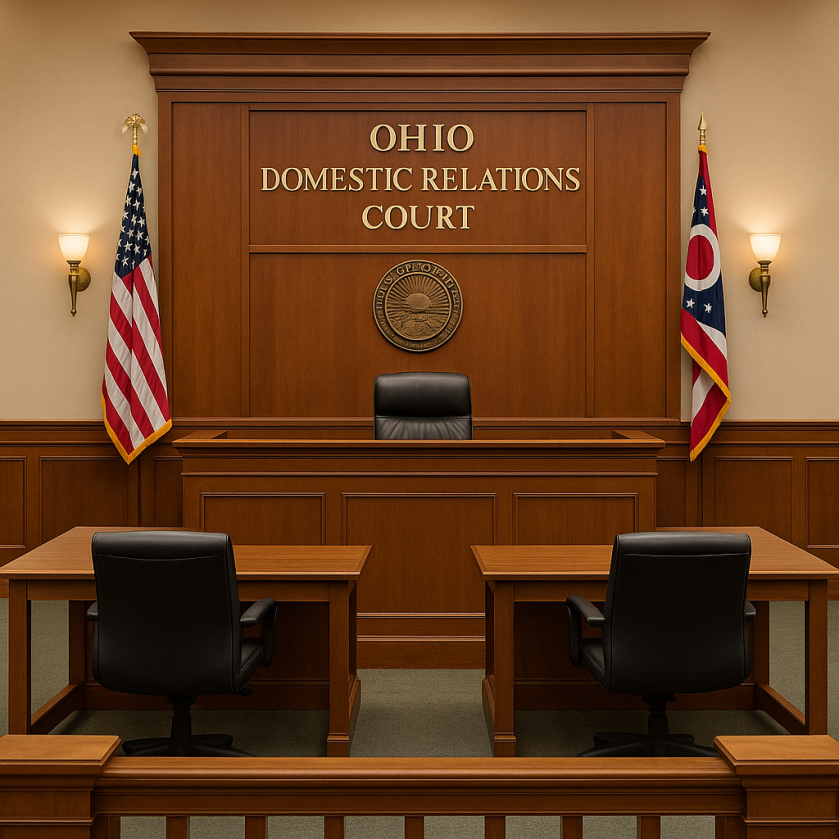Modification of Spousal Support in Ohio Courts
- Aug 5, 2025
- 6 min read
Updated: Aug 10, 2025
By Attorney Andrew Russ, Ohio Family Law Lawyer
How Ohio Courts Modify Spousal Support – Education from an Ohio Family Law Attorney Learn how Ohio courts handle spousal support modifications. Discover eligibility, legal standards, and the role of an experienced Ohio family law attorney.

Introduction
Spousal support—also referred to as alimony—is one of the most contentious and dynamic aspects of divorce proceedings in Ohio. While the initial award of spousal support is guided by statutory factors and judicial discretion, life after divorce is unpredictable. Income changes, job loss, retirement, remarriage, and health issues can all prompt a party to seek a modification of the original spousal support order. This raises a crucial question: When and how can spousal support be modified in Ohio?
As an experienced Ohio family law attorney, Andrew Russ provides clients in Columbus, Athens, and surrounding areas with strategic counsel on modifying spousal support. This article offers a detailed overview of the law governing spousal support modifications in Ohio, including the legal standard for modification, types of support, and the procedural steps necessary to initiate a change.
Understanding Spousal Support in Ohio
Ohio law authorizes courts to award temporary, short-term, or long-term spousal support as part of a divorce or dissolution. These awards are based on several statutory factors listed under Ohio Revised Code § 3105.18(C), including the duration of the marriage, income disparity, earning abilities, age, health, and standard of living during the marriage.
There are two primary types of spousal support:
Temporary Support: Paid during the pendency of divorce proceedings.
Post-Decree (Permanent or Long-Term) Support: Ordered at the conclusion of the divorce.
The question of modifiability depends heavily on how the original order or decree was structured.

When Can Spousal Support Be Modified in Ohio?
Not every spousal support order is modifiable. According to Ohio Revised Code § 3105.18(E), a modification is only possible if the original court order or separation agreement explicitly grants the court continuing jurisdiction over the issue of spousal support.
If the divorce decree is silent about modification or does not reserve jurisdiction, then neither party can later ask the court to increase, decrease, or terminate the support.

Key Requirement: Reservation of Jurisdiction
Courts will generally include language such as:
“The court retains jurisdiction to modify spousal support in the future based on a substantial change in circumstances.”
Without this reservation, you may be locked into the terms of the original decree—even if circumstances have changed significantly.
Substantial Change in Circumstances: What Does It Mean?
Once jurisdiction is established, the next hurdle is demonstrating a “substantial change in circumstances” that was not anticipated at the time of the original order. This is a legal threshold that Ohio courts take seriously.
Common Examples of Substantial Changes Include:
Job loss or significant income reduction (not due to voluntary action)
Retirement (particularly at a reasonable retirement age)
Major medical expenses or health deterioration
Cohabitation or remarriage of the recipient
Increase in the recipient’s income or financial independence
It’s not enough to show a minor financial fluctuation. The change must be material, ongoing, and unforeseeable.
Burden of Proof and Evidentiary Requirements
The party requesting modification carries the burden of proof. You must present strong, credible evidence—such as employment records, tax returns, medical documentation, or expert testimony—to substantiate your claim.
Courts will consider the same factors used during the original determination under ORC § 3105.18(C) but will also assess how the change affects both parties’ present and future financial standing.
Termination of Spousal Support in Ohio
In some cases, the modification sought is not just a reduction but a complete termination of the spousal support obligation. This may be appropriate when:
The payor reaches retirement and lives on a fixed income.
The recipient has remarried or entered into a financially supportive cohabitating relationship.
The recipient achieves significant professional advancement or inheritance.
Ohio courts will again require compelling evidence and may hold a hearing to evaluate the legitimacy of the claimed change.
Can Spousal Support Be Increased?
Yes. Just as a reduction or termination may be sought, a recipient spouse may request an increase in support if the payor’s income or assets substantially increase and the original amount becomes inadequate due to new needs or hardships.
For example:
The payor receives a large promotion or windfall.
The recipient suffers a disability or job loss.
These petitions are often more scrutinized, as courts are cautious not to penalize success or reward inaction.

The Role of the Separation Agreement
If your divorce involved a dissolution and a separation agreement, the terms of that agreement dictate the modifiability of support. A well-drafted agreement by an experienced Ohio family law attorney will clarify:
Whether spousal support is modifiable
Duration and amount
Triggers for termination or review
Be cautious: poorly worded or ambiguous agreements may limit your legal options in the future.
Procedure for Seeking a Modification
If you believe a modification is warranted, follow these general steps:
Consult with an Ohio Family Law Attorney – Proper legal analysis is crucial.
Gather Evidence – Document your change in circumstances thoroughly.
Motion to Modify Spousal Support – This must be filed with the court that issued the original decree.
Hearings (if scheduled) – Be prepared to present and defend your evidence.
Court Decision – The judge may increase, decrease, or terminate support—or deny the motion entirely.
Note: Timing matters. Courts may limit retroactive changes and may only modify support from the date the motion was filed.

Appealing a Denial of Modification
If your motion is denied, you may have the right to appeal the decision to a higher court. However, appeals are limited to legal errors—not factual disagreements, including the “abuse of discretion standard.” The better course is often to build a stronger evidentiary case and refile if conditions continue to change.
Spousal Support and Retirement: A Special Case
Retirement is a common catalyst for support modification. Ohio courts distinguish between voluntary early retirement and retirement at a customary age (typically 65). Judges consider:
Whether retirement was reasonably foreseeable
Whether it was voluntary or medically necessary
The financial impact on both parties
Working with a knowledgeable Ohio family law attorney can help structure a compelling argument that aligns with precedent.
Spousal Support and Remarriage or Cohabitation
Ohio law does not automatically terminate spousal support upon the cohabitation of the receiving party unless the divorce decree specifies it. However, courts may consider the financial interdependence resulting from cohabitation as grounds for modification.
Remarriage of the recipient often leads to automatic termination, unless the decree or agreement states otherwise.
Tax Implications of Modifying Spousal Support
Under the Tax Cuts and Jobs Act of 2017, for divorce decrees executed after January 1, 2019, spousal support is:
Not deductible by the payor
Not taxable income for the recipient
If your original decree predates this law, the old rules may apply unless your support order is modified—so be cautious and consult your tax advisor and attorney.
Why Work with an Ohio Family Law Attorney?
Spousal support modification cases are complex, technical, and emotionally charged. A skilled Ohio family law attorney will:
Evaluate your eligibility for modification
Draft persuasive pleadings
Anticipate opposition tactics
Ensure compliance with procedural requirements
Advocate for your financial stability in court
At Andrew Russ Law, we help clients in Columbus, Athens, and surrounding Ohio counties navigate post-decree modification with clarity and confidence. Whether you're seeking a reduction or defending against an unjust modification, we provide strategic representation tailored to your specific needs.
Internal Resources You Might Find Helpful

Conclusion
Life changes, and so do financial realities. Whether you are the paying or receiving party, you deserve a fair spousal support arrangement that reflects your current circumstances. Modification is not automatic, and Ohio law imposes strict requirements—but with proper legal support, you can seek a fair outcome.
If you're facing challenges with your spousal support order, reach out to Andrew Russ, Ohio family law attorney, for a confidential consultation. Our team is committed to helping you understand your rights and advocate for your financial well-being—today and into the future.
Contact Andrew Russ – Your Trusted Ohio Family Law Attorney
📍 Serving Columbus, Athens & surrounding areas
📞 (614) 907-1296 or (740) 206-8044
LINKS:







